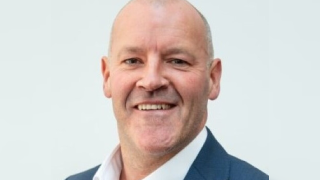Launched in 2008, the Aspire programme is focussed on helping students to graduate from high school who are at risk of dropping out early, and to prepare them for college and future careers. The programme was initiated as a result of a direct request from CEO Randall Stephenson, who saw a need in the community to have more children finishing high school. According to reports, about one in five students in the US does not graduate high school.
We need an educated workforce to be an innovative and successful company and there is a great need to push children to graduate from college and into careers. We focus on students in the ninth and twelfth grade (children aged approximately between 14 and 18). At the time of launching there was not a lot of corporate support for these ages in the US. Through Aspire, we have promised to invest $350 million in education between 2008 and 2016. Investing in education is one of the most important things we can do for a strong future and our goal is to get to a 90% graduation rate in the US by 2020.
How has the programme developed?
At the beginning, we engaged our employees by organising a one-day job shadow opportunity for children to see what a day as an AT&T employee is like. This has grown into the Aspire mentoring academy. Under the mentoring academy, we expanded the scheme to include online mentoring and have collaborated with non-profits targeting at-risk students to offer further mentoring opportunities. We have more opportunities for our employees to engage face-to-face with a mentee or online, or have them come to AT&T offices. The Aspire programme now also provides many funding opportunities to initiatives, non-profits and charities linked to education.
What projects has Aspire been part of?
A big part of what we do is seek major change through technology and innovation. Last year, we collaborated with Georgia Institute of Technology College and an organisation called Udacity in order to build an online Master of Science degree in computer science. The whole masters is done online through a platform, and the aim of this is to increase access to education, making it more inclusive for everyone. It is accredited through Georgia Tech and this is a great alternative to getting a low crust master’s degree.
Classes began in January and 401 students were offered admission during the spring 2014 semester. We have also worked with an organisation called GameDesk, a Los Angeles-based non-profit, which with the support of a $3.8 million dollar Aspire contribution has developed a platform accessible from everywhere called Educade.
Launched in September last year, Educade is a teaching portal which has all types of educational games to keep kids interested in school. The portal, which teachers can access through a website, embeds lessons on mathematics and science or socio-emotional learning through games and provides an online library of free lesson plans for a different range of ages and subjects.
How important is it to get children interested in studying science and maths?
STEM education (the fields of science, technology, engineering, and mathematics) is a priority for us as part of the Aspire initiative. We work together with a foundation called We Teach Science, an organisation which aims to inspire students to excel in maths and science. We have partnered with them to help deliver an e-mentoring programme which is designed to get children comfortable with maths and science. In addition, we are looking for initiatives that try to bring more girls into the STEM field, as we know they are definitely underrepresented in these areas. There is a general trend for girls to stop taking maths and science in high school and only a small percentage continue to study a STEM discipline in college.
Does AT&T offer similar programmes outside of the US?
AT&T has recently launched a similar programme in Europe. The Aspire initiative is very popular in the US and when those employees who have been part of the programme and had a great experience get international assignments they want to take that experience abroad with them. Aspire was launched for a domestic issue of graduation rates in the US and we have now made it fit for what works in the international community.
The Europe initiative is more focussed on addressing unemployment rates among youth. This involves collaborating with local schools to help with résumé building and interview skills, or having the children spend a day with an AT&T employee abroad. It has been exciting to see our employees embracing a local initiative and giving an international flare to the programme.




